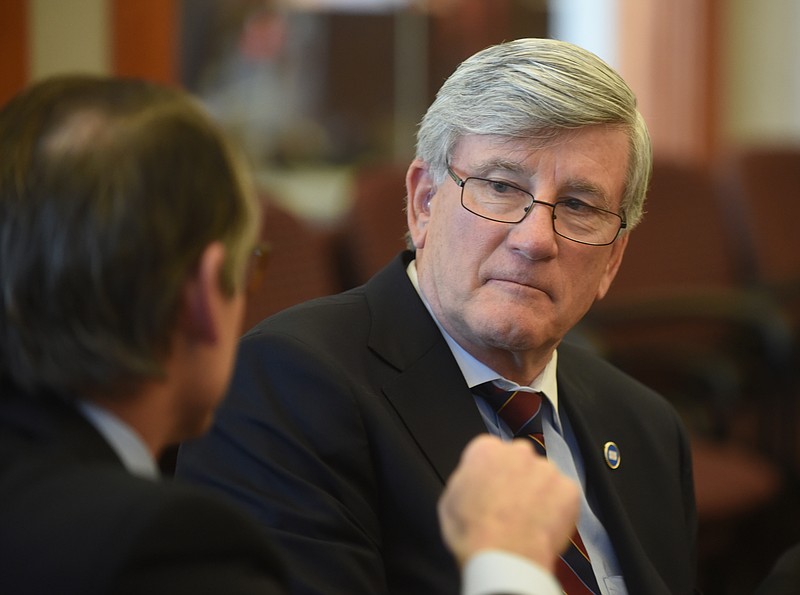NASHVILLE - Tennessee lawmakers began a rush Thursday to wrap up their work before an eight-week recess, focusing largely on must-do bills before taking up Republican Gov. Bill Lee's $40.9 billion budget now re-shaped to address coronavirus-related efforts and brace for an expected economic recession.
Last-minute bills included renewing an annual hospital assessment that maintains nearly $1.7 billion in state and federal funds for the state's TennCare Medicaid program and a similar levy on nursing homes generating $395 million.
Another measure, led by Rep. Patsy Hazlewood, R-Signal Mountain, for the Lee administration, requires marketplace facilitators that handle financial transactions for companies' selling products online to collect sales tax.
It is expected to generate $84.84 million for the state and $28.28 million for local governments.
Several last-minute controversies remained in play Thursday afternoon. Sen. Janice Bowling, R-Tullahoma, successfully moved a resolution through the upper chamber that allow local 911 emergency districts to hike their fees from $1.16 per line to $1.50 over the objections of Sen. Todd Gardenhire, R-Chattanooga, Senate Finance Chairman Bo Watson, R-Hixson, and Senate Judiciary Committee Chairman Mike Bell, R-Riceville.
Both lawmakers cite the economic uncertainty that Tennessee workers and families face as layoffs begin in response to plummeting economic activity as millions of Americans and Tennesseans are urged to curb normal activities and remain at home if possible.
Noting that the Tennessee Aquarium in Chattanooga had just sent out layoff notices to 112 part-time workers, many of them younger persons, Watson said Bowling's measure is not "mission critical" for the state and can be considered later.
"The bottom line is a penny does make a difference" with estimates unemployment rates could rise to 20% and "maybe even higher," Watson said. "The timing could not be worse."
Gardenhire said the state 911 fund is already flush with money, an estimated $45 million. Bowling successfully argued that districts needed more funding.
Bowling said districts do need the money, noting 911 services are critically needed 24 hours and seven days a week by Tennesseans.
Efforts to table the resolution failed. It passed 20-8 and will be taken up later Thursday in the House.
The General Assembly hoped to approve the governor's budget later Thursday, then recess until June 1, when officials hope the worst of the coronavirus will have passed.
Contact Andy Sher at asher@timesfreepress.com or 615-255-0550. Follow him on Twitter @AndySher1
